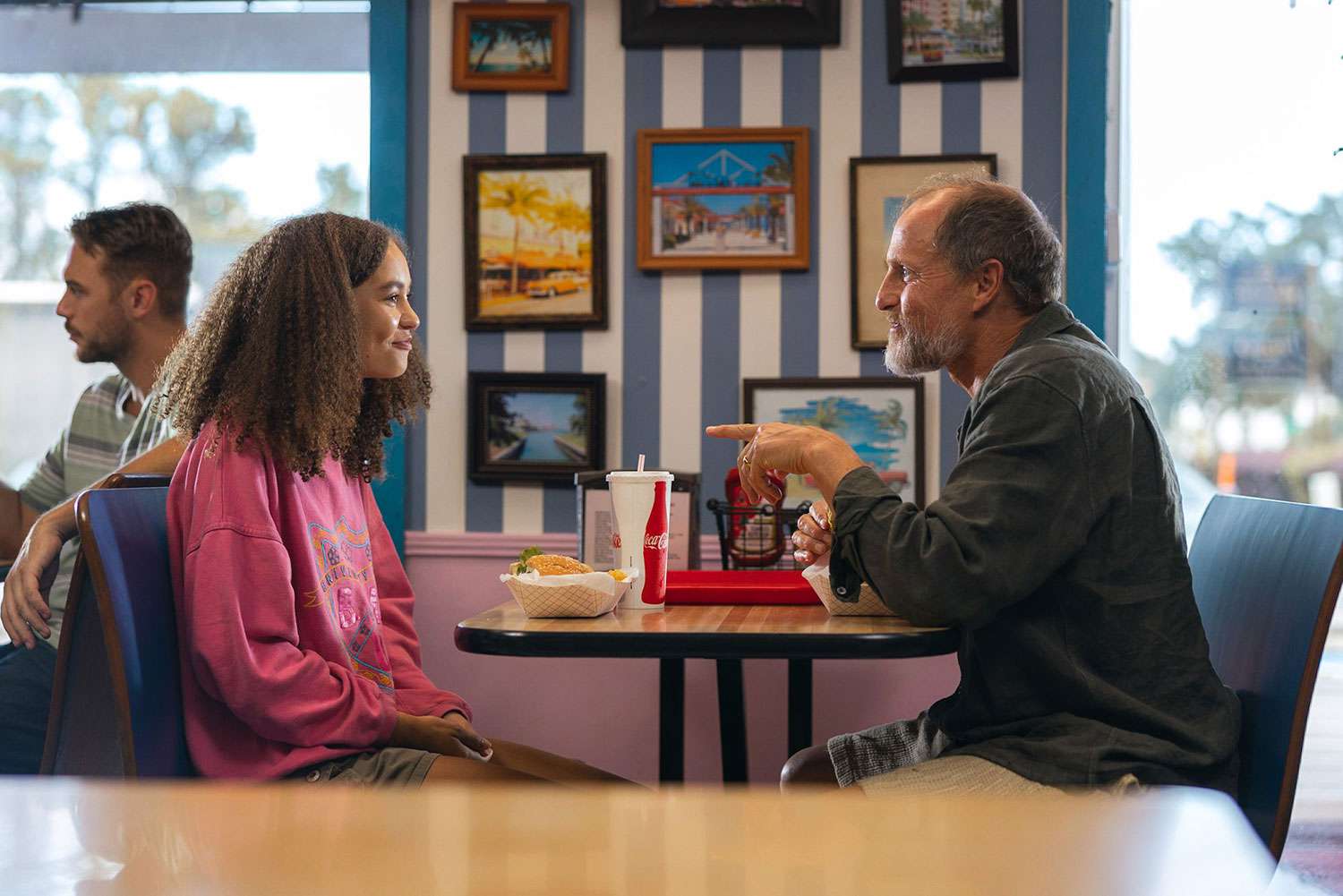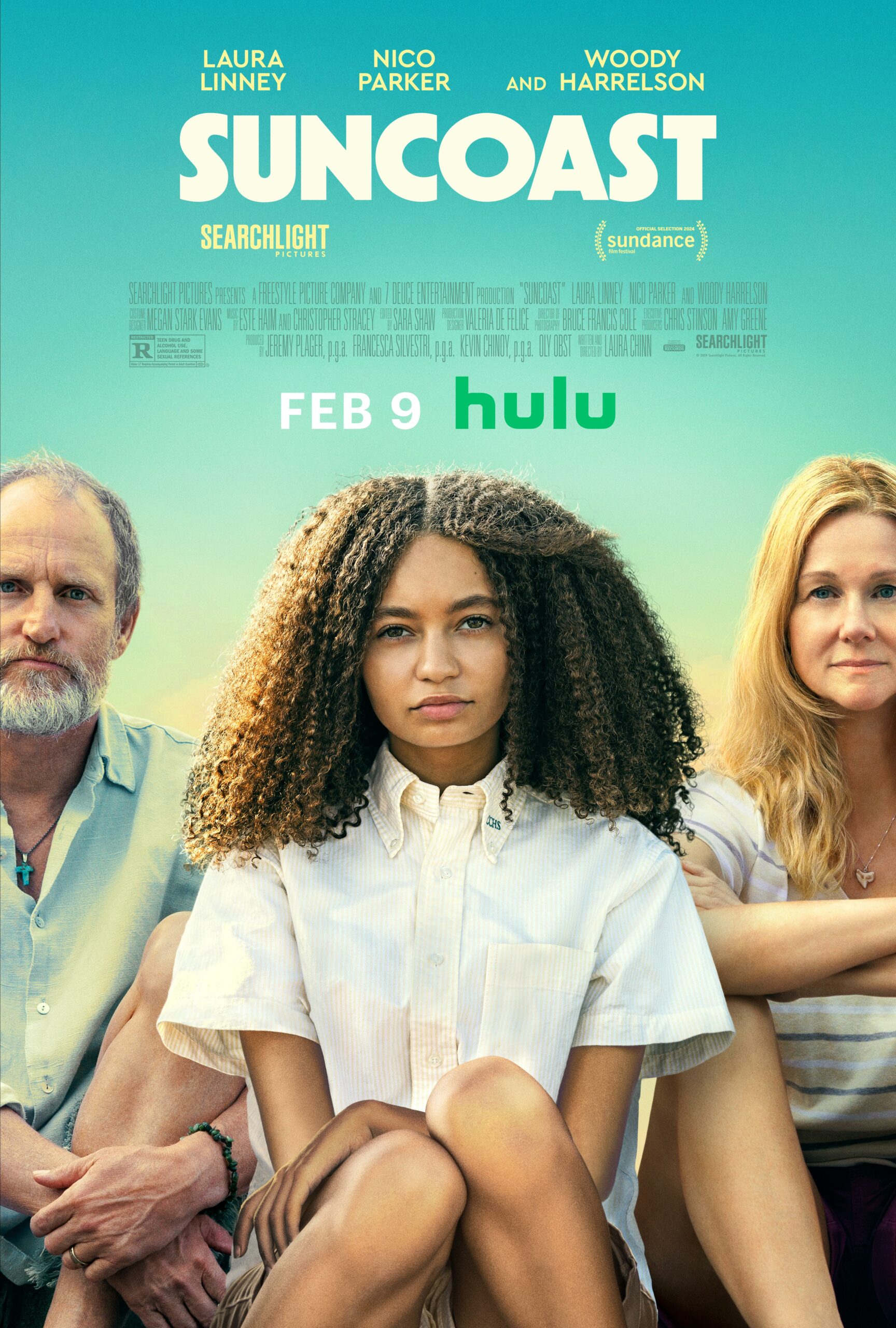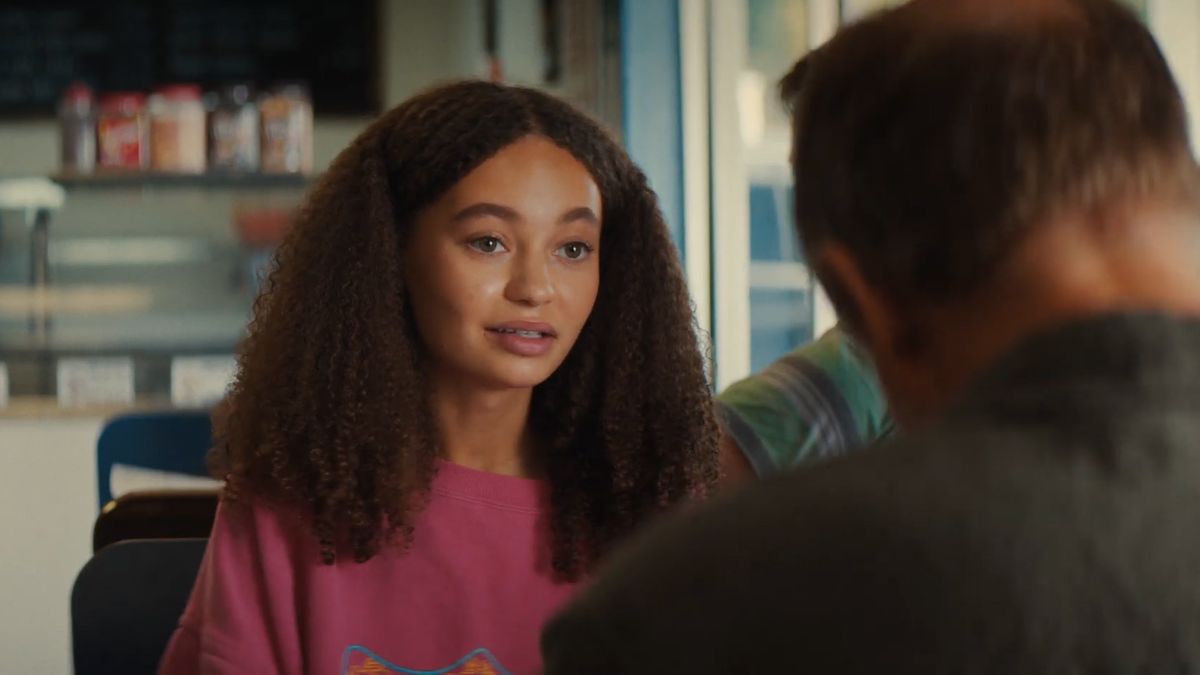Weaving complex emotions into a simple plotline, which has also not been extraordinarily executed, Laura Chinn’s semi-autobiographical film, Suncoast (2024) dwells on the most evaded and less-probed emotion- grief. As an entry for the U.S. dramatic competition category at the Sundance Film Festival, 2024, this Searchlight production has predictable but not-fully-realised characters who dabble with grief, looking for possible ways to unpack its intricate lining.
As an entry for the U.S. dramatic competition category at the Sundance Film Festival, 2024, this Searchlight production has predictable but not-fully-realised characters who dabble with grief, looking for possible ways to unpack its intricate lining.
Based on Laura Chinn’s personal experience of having her brother relegated to hospice care due to effects of brain cancer where her mother would spent her nights on the floor at the facility while Chinn tried to maintain a ‘normal’ school-girl life, Suncoast nudges at uncomfortable questions of care, ethics, family, religion while slowly steering through multiple levels of grief that the characters try to combat with. It also interweaves these questions with the story of Terri Schiavo, whose right-to-death case had garnered national interest in the U.S. in 2005.
Kristine, Doris and life on suspension in Suncoast
As Suncoast begins we follow listless Doris (Nico Parker) wheeling her non-responsive, dying brother Max (Cree Kawa) through Florida streets up to their house which lacks vibrancy since the life of Doris and her mother, Kristine is on suspension while awaiting Max’s death. Kristine (Laura Linney) is the over-worked, headstrong mother whose grief at witnessing her first born die slowly manifests itself through her complete denial to accept that death is inevitable and it is better to let him go.
Instead she is overtly caring to the absent-presence of her unresponsive, paralytic child which becomes starkly visible due to her complete lack of care towards Doris. For Kristine, Doris does not seem to exist except as someone who must take care of her son in her absence. A suffocating sense of weariness and gloom hangs all over the space and the characters, which inevitably affects the way Kristine and Doris negotiate their relationship beyond that room which smells of medicines and piss.
However, Suncoast does not follow Kristine’s life beyond her dual role as a mother. She is a caring mother to Max and a dominating, almost emotionally cruel mother to Doris, who neglects her teenage girl’s want of freedom and care. The film takes us through Doris’ life who, while living in the shadow of her brother’s illness, has emerged as a recluse, who apologises often, protests against her mother’s irrational behavior but eventually comes around, and is a nobody at school. Predictably she urges for friendship and her “normal” life, which she eventually gets a taste of when her mother moves to the Suncoast hospice to be with her dying son. Unused to reckless partying or teenage conversations, Doris finds herself as a misfit with the crowd of “friends” who occupy her empty house which she has volunteered for such gatherings, in the hope of appearing “cool” and attracting friends.
At the hospice she develops an unusual friendship with Paul Warren (Woody Harrelson), who has gathered with the protestors who raise their voice against the government for Terri Schiavo, who is also housed at the same hospice, Suncoast.
At the hospice she develops an unusual friendship with Paul Warren (Woody Harrelson), who has gathered with the protestors who raise their voice against the government for Terri Schiavo, who is also housed at the same hospice, Suncoast. Conversations on death, recovery, life and “good mothers” brings out Doris’ frustration at being enchained to her vegetative brother’s flickering life and her mother’s complete disassociation with her while we find Paul grieving about the sudden death of his wife and thus asserting, ‘every life is precious’.
Is freedom how we perceive it to be?
Through the loosely knit plot and subplot, we witness how the fresh lease of life that Doris gets due of her mother’s absence at home baffles her as she is unable to understand whether this is the normalcy that she was looking for. She revolts at her mother’s enforcement of grief and guilt, and escapes to a party with friends, only to hasten to the hospice at the false alarm of her brother’s death raised by her mother. This staging of death snaps the cord of patience in her and she abandons her mother despite Paul’s consistent effort to calm her down.
Although she spurts anger at Paul in her frustration, this unusual friendship with a person who was unprepared for the death of a dear one and thereby forced to grieve, makes her rethink her relationship with her dying brother. Revisiting older pictures and videos of their childhood, she realises moments of happiness were in the ways they were together, and just as Paul had explained, may be, living that togetherness till the end now would endow that relationship with the closure it requires for everyone to move on.
As an epiphany she understands her mother, who is unable to separate herself from her first born whose impending death makes Kristine forgetful of the needs of her living child, her daughter. May be it is unnecessary to argue here whether she would have done the same if the Doris was a boy, because here the motherly care seems to be more attached to that child who is physically disintegrating than the physically healthier one. Attention towards the physical effacement of the dying child overpowers emotional need of the healthy one at the cost of both an estrangement of the mother and the daughter and the consequent estrangement of the mother with herself.
The baggage of a mother in Suncoast
Kristine is not ready to take help of the grief counselor, Sue, as she believes she is not grieving until her son is dead. She does not enter the hospice church because religion is baseless for her, the refuge for the weak. She manipulates her daughter’s emotions and life so that she could make Doris stay by her side, without acknowledging that she needs support. It is only later that she realises with a shock how her obsession with her son’s illness has made her forget her daughter. But instead of trying to make amends she further antagonises Doris by raising the false alarm of Max’s death, calling her off a party and then, holding her guilty of having “fun” while her brother is dying.
It is as if the performance of grief becomes more important to her than encountering it. It is then that she ultimately realises how she has been holding onto grief, to as if compensate for the pain Max is undergoing which she, as a mother, cannot lessen. The baggage that she carries as a mother and a caregiver does not allow her to realise that she is a human and cannot control it all. In a quick succession of scenes, we find her at the church, where she finally opens up to her grief, and allows herself to cry for the son who is breathing his last.
Doris on the other hand learns about the last hours of her brother, yet chooses to go to prom, as if to revolt against her mother’s emotional oppression, only to realise she must allow herself to live the last moments of togetherness with her brother while he is still there. She must tell him her unspoken thoughts, let it vent out so that she could grieve for the loss of her brother, may be even her childhood, and “normal” life. However, she is late to reach the hospice. She breaks down in her mother’s arms, who is all prepared to grieve with and support her teenage daughter through this loss. While returning home Kristine and Doris realise they would not return to the life they had left behind. Kristine lets Doris drive their old van, since now the terms for life will all be set anew.
It’s all messy and so be it
The transitions in the film are quick to allow much to sink in. However, the film tries to dwell on the uneasy issue of ethics which cannot be divided into simple black-white categories. The background story of Terry Schiavo’s right-to-death case serves as an interesting point of debate where Doris opines that people with no experience of living with terminally ill patients have impractical opinions that do not matter. Taking care can be tiring, she blurts out, where death can also be a relief. Such discussions bring up uncomfortable facts while also directing attention towards the need for emotional and material support to care-givers.
Suncoast tries to raise awareness on how the healthy child in a family that has a terminally sick child also has to cope up with the inattention and neglect. This simple film, without any complicated twists, through heart rending performance by Linney and Nora, seems to point forth that family is a messy space and relationships are messier. Hence the only way we can understand how to go about it is by trying to go with the flow, not in a Zen-mode, but by allowing ourselves to feel everything that comes along and to find new ways to live the myth of balance that life has been attached to.
About the author(s)
Priyanka Chatterjee is a mother, researcher, and academic. She lives and writes from Siliguri. Her articles have appeared in Feminism in India, LiveWire, Himal Southasian, Sikkim Express, among others. She can be reached at site.surferpc@gmail.com and is on Instagram @priz_chatt








